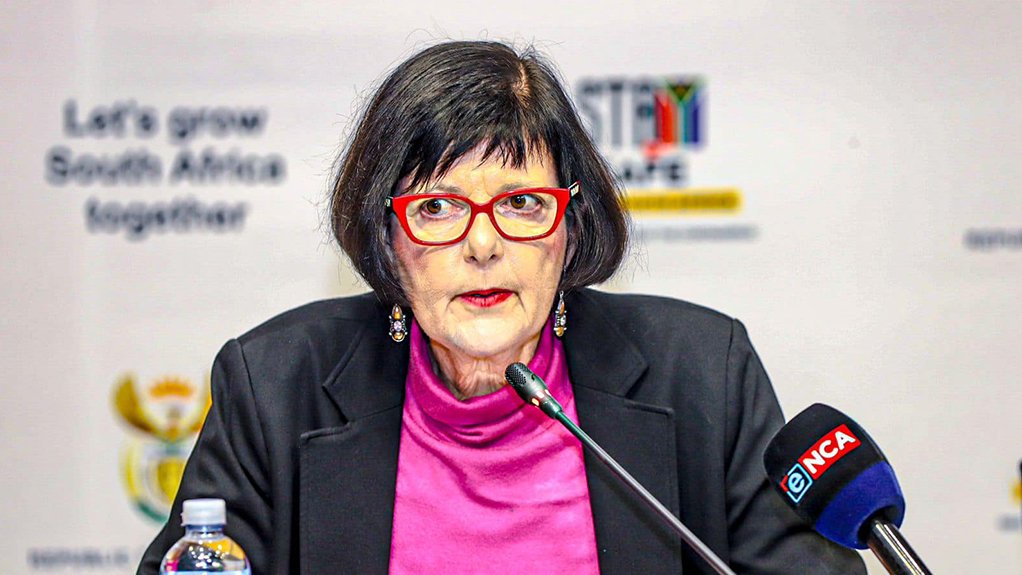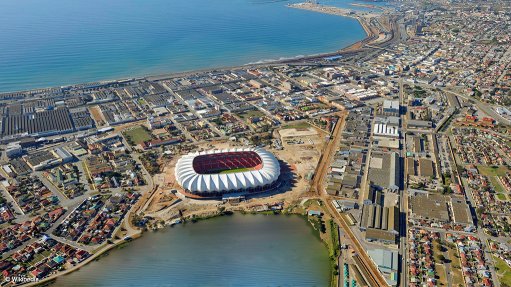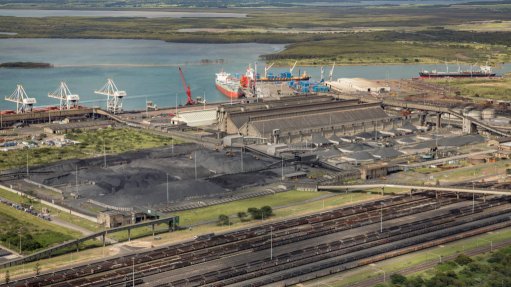Conference highlights SADC rail opportunities, challenges
Highlighting the critical role of rail in boosting economic prosperity and trade in Africa, this year’s Southern African Railways Association (SARA) Conference and Exhibition emphasised the theme ‘Boosting continental trade via rail: Investments in African railways for the sustainable development of the continent'.
Speaking on the first day of the event, on August 20, SARA president Hishaam Emeran said freight and passenger rail had the potential to fuel economic growth, enhance regional connectivity and bring about sustainable development across Africa.
“The decisions we make regarding investment in rail infrastructure, rolling stock and systems will determine how effectively we can unlock the full potential of the African Continental Free Trade Area (AfCFTA),” he said.
With this in mind, Emeran noted some of the advancements in rail infrastructure development across the Southern African Development Community (SADC) region, which he said laid the foundation for a modern, more connected, efficient and sustainable rail network that would “serve as the backbone of Africa’s economic transformation.”
He pointed to the example of the Lobito corridor, which he said was expected to unlock the potential of the region, enhance export possibilities for Angola, the Democratic Republic of Congo and Zambia, as well as improve logistics along the corridor.
Emeran also noted that South Africa had witnessed a recovery of nearly 80% of passenger rail corridors, arguing, however, that complex regulatory environments remained a challenge to integration.
Also speaking at the conference, Transport Minister Barbara Creecy discussed various challenges facing the South African rail sector, such as ageing infrastructure, inadequate funding and safety and security, and capacity concerns.
She argued that these challenges were further complicated by a need for greater regional integration, interoperability and harmonisation of standards to ensure efficient and competitive rail services, noting that the rail sector had a direct impact on the cost structure of economies.
“Given the critical role of rail in transporting bulk goods such as minerals, agricultural products and energy resources, railways within our region are essential in enhancing the competitiveness of our products and services in the broader global market,” she expressed.
Creecy discussed the implications of evolving technologies and climate change on the sector, stressing the importance of capitalising on rail as an environment-friendly and sustainable mode of transport.
“This is a strength that we must harness and expand.”
Creecy urged operators to embrace clean fuels and new technologies in rail operations. In so doing, she said, the SADC railway sector could position itself as a leading voice in the global transition to sustainable transport.
Moreover, with South Africa having sent products to other counties under the AfCTFA Agreement earlier this year, Creecy said the Department of Transport in South Africa was implementing policy and interventions, such as the freight logistics roadmap, to help revive, support and modernise the capacity and competitiveness of the local rail sector.
She said this included regulations to improve market competitiveness, improving safety standards and developing human capacity at every level.
In addition to infrastructure and technology, Creecy also noted the importance of skills and expertise of people working in the sector.
“A robust and future-ready rail sector is not solely built on infrastructure and technology. It is underpinned by the skills and expertise of people who work within it. As we look to modernise and expand our rail networks, the need for investment in appropriate skills across logistics and engineering, and infrastructure development, cannot be overstated.
“We must work across the SADC region to ensure our people have the skills we need to support the continued growth and modernisation of the rail sector. Investing in these skills will not only help us address the challenges we face, but will also enable us to take advantage of new opportunities.”
Further, she also highlighted the importance of key strategic corridors, such as the North South corridor, for regional trade, noting that these corridors faced challenges such as congestion, delays at border crossings and the need for better coordination among SADC countries.
She posited that, while connectivity among SADC railways provided opportunities for cooperation, it was important to address these challenges.
“These challenges are significant, but they are not insurmountable,” she said.
Article Enquiry
Email Article
Save Article
Feedback
To advertise email advertising@creamermedia.co.za or click here
Press Office
Announcements
What's On
Subscribe to improve your user experience...
Option 1 (equivalent of R125 a month):
Receive a weekly copy of Creamer Media's Engineering News & Mining Weekly magazine
(print copy for those in South Africa and e-magazine for those outside of South Africa)
Receive daily email newsletters
Access to full search results
Access archive of magazine back copies
Access to Projects in Progress
Access to ONE Research Report of your choice in PDF format
Option 2 (equivalent of R375 a month):
All benefits from Option 1
PLUS
Access to Creamer Media's Research Channel Africa for ALL Research Reports, in PDF format, on various industrial and mining sectors
including Electricity; Water; Energy Transition; Hydrogen; Roads, Rail and Ports; Coal; Gold; Platinum; Battery Metals; etc.
Already a subscriber?
Forgotten your password?
Receive weekly copy of Creamer Media's Engineering News & Mining Weekly magazine (print copy for those in South Africa and e-magazine for those outside of South Africa)
➕
Recieve daily email newsletters
➕
Access to full search results
➕
Access archive of magazine back copies
➕
Access to Projects in Progress
➕
Access to ONE Research Report of your choice in PDF format
RESEARCH CHANNEL AFRICA
R4500 (equivalent of R375 a month)
SUBSCRIBEAll benefits from Option 1
➕
Access to Creamer Media's Research Channel Africa for ALL Research Reports on various industrial and mining sectors, in PDF format, including on:
Electricity
➕
Water
➕
Energy Transition
➕
Hydrogen
➕
Roads, Rail and Ports
➕
Coal
➕
Gold
➕
Platinum
➕
Battery Metals
➕
etc.
Receive all benefits from Option 1 or Option 2 delivered to numerous people at your company
➕
Multiple User names and Passwords for simultaneous log-ins
➕
Intranet integration access to all in your organisation





















